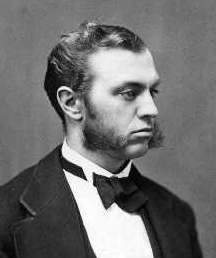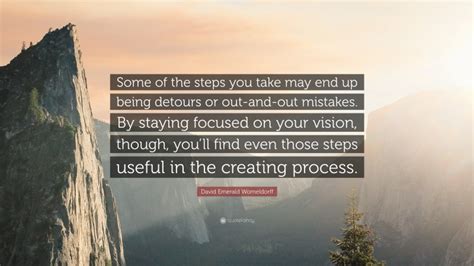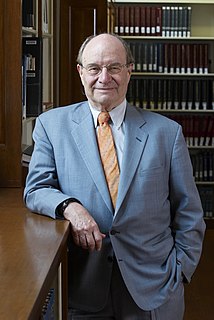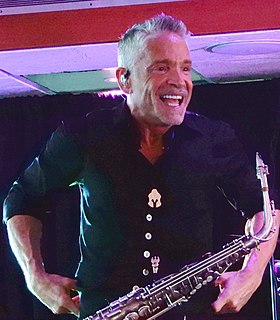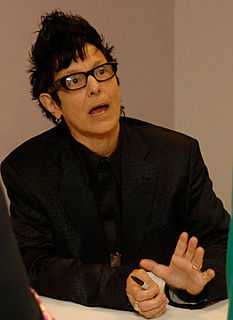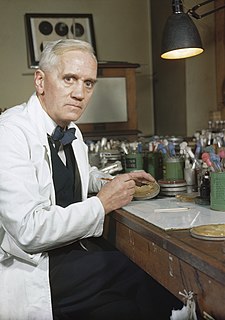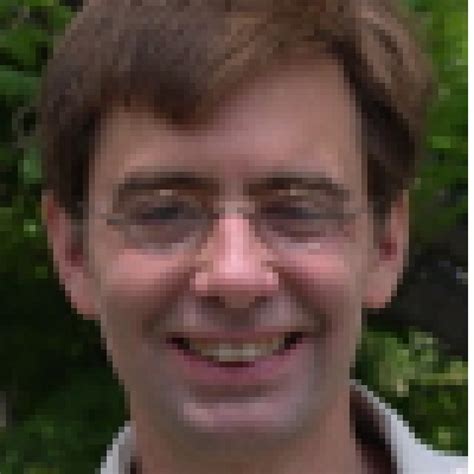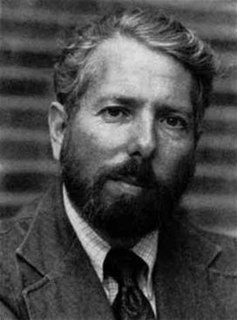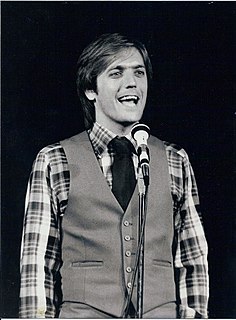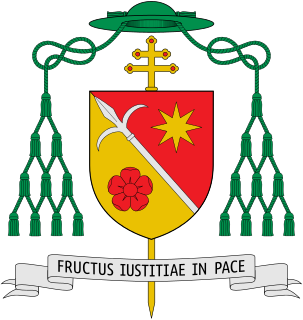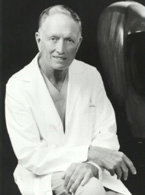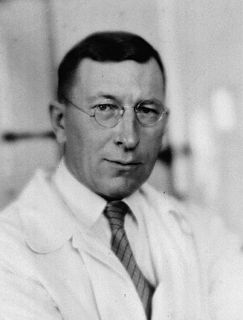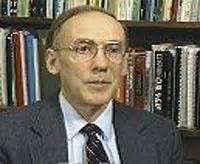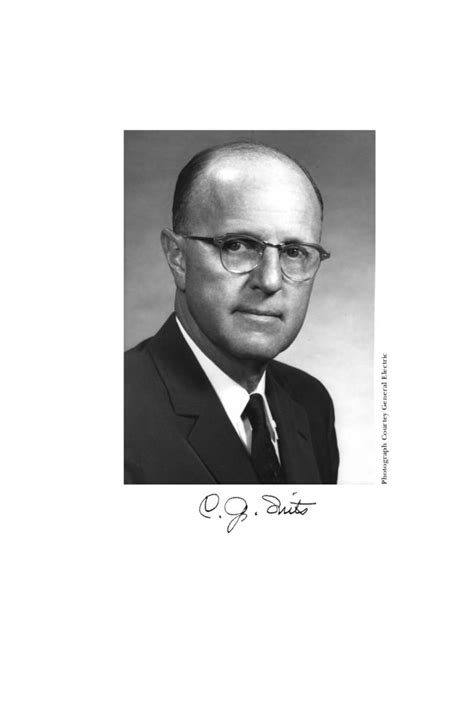Top 439 Laboratory Quotes & Sayings - Page 7
Explore popular Laboratory quotes.
Last updated on April 19, 2025.
Liebig taught the world two great lessons. The first was that in order to teach chemistry it was necessary that students should be taken into a laboratory. The second lesson was that he who is to apply scientific thought and method to industrial problems must have a thorough knowledge of the sciences. The world learned the first lesson more readily than it learned the second.
As Stewart Brand (co-founder of Emeryville's Global Business Network) likes to say, "Information lasts forever. Digital information lasts forever or for five years, whichever comes first." There are examples everywhere. The tapes from the original Viking landers that went to Mars are at (NASA's) Jet Propulsion Laboratory, but there is no machine that can read the tapes.
The ducks in St James's Park are so used to being fed bread by secret agents meeting clandestinely that they have developed their own Pavlovian reaction. Put a St James's Park duck in a laboratory cage and show it a picture of two men -- one usually wearing a coat with a fur collar, the other something sombre with a scarf -- and it'll look up expectantly.
I am accountable for all the actions at my laboratory. I am accountable for all of the policies and procedures of security systems, and I am accountable for the training of the individuals working in the lab. We can't excuse them if they ignore these policies, if they are negligent, we have to hold them accountable as well.
Any really good scientist is as much an artist as a scientist. All the interesting stuff is found on the edge between knowing and not knowing. I know that sounds like a meditation teacher speaking, but when you're in the laboratory, or you're theorizing about physics, you need to know what you know, but if you can't get out from under that, you won't be able to make that insightful, first-time connection that nobody else has seen before.
Out of every hundred new ideas ninety-nine or more will probably be inferior to the traditional responses which they propose to replace. No one man, however brilliant or well-informed, can come in one lifetime to such fullness of understanding as to safely judge and dismiss the customs or institutions of his society, for those are the wisdom of generations after centuries of experiment in the laboratory of history.
Nowadays, not to say that that doesn't happen, but music is made a lot almost in a laboratory where you get one guy working in one studio, they send the file to another guy in some other part of the world, they send it back and then they send it this way and that way. Musicianship is kind of - there's nothing wrong with that. In fact, some great music is made that way.
When chemists have brought their knowledge out of their special laboratories into the laboratory of the world, where chemical combinations are and have been through all time going on in such vast proportions,-when physicists study the laws of moisture, of clouds and storms, in past periods as well as in the present,-when, in short, geologists and zoologists are chemists and physicists, and vice versa,-then we shall learn more of the changes the world has undergone than is possible now that they are separately studied.
There has been opposition to experimenting on animals for a long time. This opposition has made little headway because experimenters, backed by commercial firms that profit by supplying laboratory animals and equipment, have been able to convince legislators and the public that opposition comes from uninformed fanatics who consider the interests of animals more important than the interests of human beings.
As he approached the place where a meeting of doctors was being held, he saw some elegant limousines and remarked, "The surgeons have arrived." Then he saw some cheaper cars and said, "The physicians are here, too." ... And when he saw a row of overshoes inside, under the hat rack, he is reported to have remarked, "Ah, I see there are laboratory men here."
Only a work democracy can create the foundation of genuine freedom. Long experience in sociological disputes leads me to expect that a great many people will take offense at the disclosure of this miscalculation. It makes the highest demands on people's will to veracity; it puts a heavy burden on everyday living; it places all social responsibility on those who work, be it in the factory, in the office, on the farm, in the laboratory, or wherever.
Regarding perfection, that's a very difficult question. I can say that I have superseded most in my sadhana [practice]. I am in it, and my mind and my intelligence gets better in my sadhana, and it reaches a certain place. When I stretch, I stretch in such a way that my awareness moves, and a gate of awareness finally opens... My body is a laboratory, you can say. I don't stretch my body as if it is an object. I do yoga from the self towards the body, not the other way around.
My investigation of movement has led me to choices which vary from traditional norms. My dancers and I see the rehearsal as a laboratory for testing scientific principles on the body. We invent action ideas which we think are archetypal, noticeable, understandable. The outcome is a mixture of slam dancing, exquisite and amazing human flight and a wild action sport which captures kids, older people and the general public’s hearts and minds and bodies.
I have been trying to point out that in our lives chance may have an astonishing influence and, if I may offer advice to the young laboratory worker, it would be this-never neglect an extraordinary appearance or happening. It may be-usually is, in fact-a false alarm that leads to nothing, but may on the other hand be the clue provided by fate to lead you to some important advance.
In a lot of ways, L.A. has always been kind of colonized or marginalized by New York. It still goes on to this day, but I would add that it really feeds New York because it provides artists for that system. This is really a laboratory where they grow the seeds and they go there and blossom because there's still not a lot of support in L.A. for artists.
Sometimes I think that the only effective and productive method of destroying speciesism would be for each uncaring human to be forced to live the life of a cow on a feedlot, or a monkey in a laboratory, or an elephant in the circus, or a bull in a rodeo, or a mink on a fur farm. Then people would be awakened from their soporific states and finally understand the horrors that are inflicted on the animal kingdom by the vilest species to ever roam this planet: the human animal!
To our senses, the elements are four and have ever been, and will ever be for they are the elements of life, of poetry, and of perception, the four Great Ones, the Four Roots, the First Four of Fire and the Wet, Earth and the wide Air of the World. To find the other many elements, you must go to the laboratory and hunt them down. But the four we have always with us, they are our world. Or rather, they have us with them.
I am among those who think that science has great beauty. A scientist in his laboratory is not only a technician: he is also a child placed before natural phenomena which impress him like a fairy tale. We should not allow it to be believed that all scientific progress can be reduced to mechanisms, machines, gearings, even though such machinery has its own beauty.
We have been forced to admit for the first time in history not only the possibility of the fact of the growth and decay of the elements of matter. With radium and with uranium we do not see anything but the decay. And yet, somewhere, somehow, it is almost certain that these elements must be continuously forming. They are probably being put together now in the laboratory of the stars. ... Can we ever learn to control the process. Why not? Only research can tell.
In my own field, x-ray crystallography, we used to work out the structure of minerals by various dodges which we never bothered to write down, we just used them. Then Linus Pauling came along to the laboratory, saw what we were doing and wrote out what we now call Pauling's Rules. We had all been using Pauling's Rules for about three or four years before Pauling told us what the rules were.
But when we face the great questions about gravitation Does it require time? Is it polar to the 'outside of the universe' or to anything? Has it any reference to electricity? or does it stand on the very foundation of matter-mass or inertia? then we feel the need of tests, whether they be comets or nebulae or laboratory experiments or bold questions as to the truth of received opinions.
I feel that, in a sense, the writer knows nothing any longer. He has no moral stance. He offers the reader the contents of his own head, a set of options and imaginative alternatives. His role is that of a scientist, whether on safari or in his laboratory, faced with an unknown terrain or subject. All he can do is to devise various hypotheses and test them against the facts.
The order and harmony of the Western world, its most famous achievement, and a laboratory in which structures of a complexity as yet unknown are being fashioned, demand the elimination of a prodigious mass of noxious by-products which now contaminate the globe. The first thing we see as we travel round the world is our own filth, thrown into the face of mankind.
This is what the Mars Science Laboratory (MSL) represents. Experimental, explorational science. Learning about Mars as a new world. Discovering new things that will tell us about the history of our solar system, help reveal the secrets of life, and continue blazing the trail that may someday be traveled by the rest of us.
My point is that when you look at a rabbit and can see only a pest, or vermin, or a meal, or a commodity, or a laboratory subject, you aren't seeing the rabbit anymore. You are seeing only yourself and the schemes and appetites we bring to the world-seeing, come to think of it, like an animal instead of as a moral being with moral vision.
For many years in my laboratory and other laboratories around the world, we've been studying fly behaviors in little flight simulators. You can tether a fly to a little stick. You can measure the aerodynamic forces it's creating. You can let the fly play a little video game by letting it fly around in a visual display.
Granted the endless variations of moral customs, still the essential standards persist. As in a scientific laboratory, all else may change but the standards are unalterable- disinterested love of truth, fidelity to facts, accuracy in measurement, exactness of verification-so, in life as a whole, the towering ethical criteria remain unshaken. Falsehood is never better than truth, theft better than than honesty, treachery better than loyalty, cowardice better than courage.
My mother had seven children in seven years. No twins. She also had a three-legged beagle who was compelled to bite strangers, a freakishly big double-pawed tomcat who regularly left dead rabbits on the front doorstep, and 70 white mice that one or another of us had smuggled home from my father's research laboratory.
It's becoming clear that in a sense the cosmos provides the only laboratory where sufficiently extreme conditions are ever achieved to test new ideas on particle physics. The energies in the Big Bang were far higher than we can ever achieve on Earth. So by looking at evidence for the Big Bang, and by studying things like neutron stars, we are in effect learning something about fundamental physics.
In fact, numerous scientific laboratory tests and field observations have led to the conclusion that animals are conscious, intelligent, emotional beings. They are not machines and truly feel physical pain when it is inflicted upon them. They are capable of experiencing a wide range of emotions, including loneliness, embarrassment, sadness, longing, depression, anxiety, panic, and fear, as well as joy, relief, surprise, happiness, contentment, and peace.
I started with the belief that every person who came to the laboratory was free to accept or to reject the dictates of authority. This view sustains a conception of human dignity insofar as it sees in each man a capacity for choosing his own behavior. And as it turned out, many subjects did, indeed, choose to reject the experimenter's commands, providing a powerful affirmation of human ideals.
It is not difficult to make microbes resistant to penicillin in the laboratory by exposing them to concentrations not sufficient to kill them, and the same thing has occasionally happened in the body. The time may come when penicillin can be bought by anyone in the shops. Then there is the danger that the ignorant man may easily underdose himself and by exposing his microbes to non-lethal quantities of the drug make them resistant.
There is, in fact, no reason to believe that any given natural phenomenon, however marvelous it may seem today, will remain forever inexplicable. Soon or late the laws governing the production of life itself will be discovered in the laboratory, and man may set up business as a creator on his own account. The thing, indeed, is not only conceivable; it is even highly probable.
As the founding lead of the Google Brain team, former director of the Stanford Artificial Intelligence Laboratory, and now overall lead of Baidu's AI team of some 1,200 people, I've been privileged to nurture many of the world's leading AI groups and have built many AI products that are used by hundreds of millions of people.
I'm not the "not-working" type. I derive pleasure from my work. Work gives me relaxation too. Every moment I am thinking of something new: making a new plan, new ways to work. In the same way that a scientist draws pleasure from long hours in the laboratory, I draw pleasure in governance, in doing new things and bringing people together. That pleasure is sufficient for me.
As I worked on projects which fulfilled a real human need forces were working through me which amazed me. I would often go to sleep with an apparently insoluble problem. When I woke the answer was there. Why, then, should we who believe in Christ be so surprised at what God can do with a willing man in a laboratory? Some things must be baffling to the critic who has never been born again.
Now, suppose a Negro does something really magnificent, and I glory, not in the benefit to mankind, but in the fact that the doer was a Negro. Must I not also go hang my head in shame when a member of my race does something execrable? . . . The white race did not go into a laboratory and invent incandescent light. That was Edison. . . . If you are under the impression that every white man is an Edison, just look around a bit.
England and all civilised nations stand in deadly peril of not having enough to eat. As mouths multiply, food resources dwindle. Land is a limited quantity, and the land that will grow wheat is absolutely dependent on difficult and capricious natural phenomena... I hope to point a way out of the colossal dilemma. It is the chemist who must come to the rescue of the threatened communities. It is through the laboratory that starvation may ultimately be turned into plenty... The fixation of atmospheric nitrogen is one of the great discoveries, awaiting the genius of chemists.
I was very happy with Vampire's Kiss, which in my opinion was almost like an independent laboratory to start realizing some of my more expressionistic dreams with film performance. Then using what I had learned in Vampire's Kiss and putting it into a very big action movie in the form of Face/Off with John Woo. If you look at those two movies back to back, you can see where I stole from my performance in Vampire's Kiss.
The Regime has become so smug it can't tell the difference among the revolutionary, the innovative, or the merely various. The high command knows so little about the outside that if I came back with a fully equipped chemical laboratory and told them I'd found it in a cave, they'd probably believe that, so long as I brought it back piecemeal in my saddle bags, thus proving I hadn't known it was there beforehand.
I went into science, ending up with a Ph.D. in cell biology, but along the way I found out that experimental science involves many hours and days and nights of laboratory work, which is a lot like washing dishes, only a little more challenging. I was too impatient, and maybe a little too sloppy, for it.
I always tried to live up to Leo Szilard's commandment, "don't lie if you don't have to." I had to. I filled up pages with words and plans I knew I would not follow. When I go home from my laboratory in the late afternoon, I often do not know what I am going to do the next day. I expect to think that up during the night. How could I tell them what I would do a year hence?
Of the many 'firsts' with which I have been involved at the Texas Heart Institute —including the first successful human heart transplant in the United States and the first total artificial heart transplant in the world—the achievement that may have the greatest impact on health care did not occur in the operating room or in the research laboratory. It happened on a piece of paper... when we created the first-ever packaged pricing plan for cardiovascular surgical procedures.
I noticed affixed to a laboratory door the following words: "Les théories passent. Le Grenouille reste. [The theories pass. The frog remains.] &mdashJean Rostand, Carnets d'un biologiste." There is a risk that in the less severe discipline of criticism the result may turn out to be different; the theories will remain but the frog may disappear.
It was an extremely trying time for me. Best was still intimate with MacLeod and the others about the laboratory. I was out of the picture entirely. MacLeod had taken over the whole physiological investigation. Collip had taken over the biochemistry. Professor Graham and Dr. Campbell had taken over the whole clinical aspect of the investigation.
It is my conviction that if any professional biologist will take adequate time to examine carefully the assumptions upon which the macro-evolution doctrine rests, and the observational and laboratory evidence that bears on the problem of origins, he/she will conclude that there are substantial reasons for doubting the truth of this doctrine. Moreover, I believe that a scientifically sound creationist view of origins is not only possible, but it is to be preferred over the evolutionary one.
History teaches us that many breakthroughs were happy accidents. Whether that's penicillin coming from Fleming neglecting to clean his laboratory before going on vacation or the team at Odeon trying a little side project that allowed people to communicate in real time as long as their message was 140 characters or less (which ultimately of course became Twitter), the unintended is often the transformational.
In the laboratory, we call this the six-degrees-of-separation-from-cancer rule: you can ask any biological question, no matter how seemingly distant-what makes the heart fail, or why worms age, or even how birds learn songs-and you will end up, in fewer than six genetic steps, connecting with a proto-oncogene or tumor suppressor.
Students using astrophysical textbooks remain essentially ignorant of even the existence of plasma concepts, despite the fact that some of them have been known for half a century. The conclusion is that astrophysics is too important to be left in the hands of astrophysicists who have gotten their main knowledge from these textbooks. Earthbound and space telescope data must be treated by scientists who are familiar with laboratory and magnetospheric physics and circuit theory, and of course with modern plasma theory.
Tungsten, X-rays, and Coolidge form a trinity that has left an indelible impression upon our life and times. The key word in this triad is Coolidge, for his work brought the element tungsten from laboratory obscurity to the central role of the industrial stage and gave the X-ray a central role in the progress of medicine throughout the world.
God is going to reveal to us things He never revealed before if we put our hands in His. No books ever go into my laboratory. The thing I am to do and the way of doing it are revealed to me. I never have to grope for methods. The method is revealed to me the moment I am inspired to create something new. Without God to draw aside the curtain I would be helpless.
